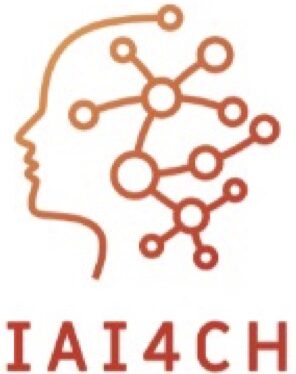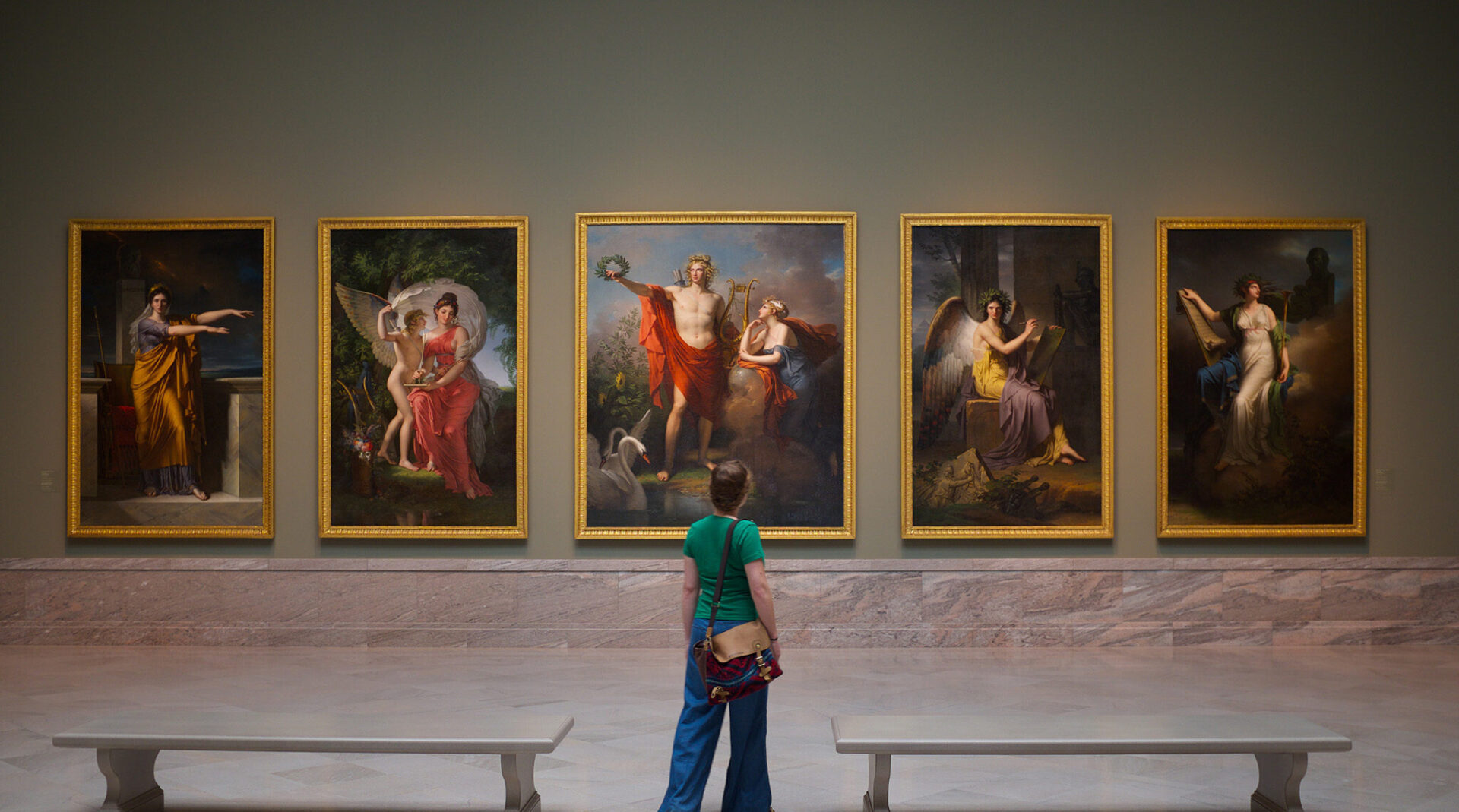IAI4CH – Edition 2022
Welcome to the web site of IAI4CH , the 1st Italian Workshop on Artificial Intelligence for Cultural Heritage, which will be held in conjunction with the 21st International Conference of the Italian Association for Artificial Intelligence (AIxIA 2022), which will take place at University of Udine (Italy) from 28 november to 2 december 2022.
The AI*IA Steering Board has recently approved the establishment of a Working Group on “Artificial Intelligence for Cultural Heritage”. This workshop will represent the first opportunity to gather interested researchers and practitioners, and to form the initial core of the working group. It is intended to become the yearly event in which the group members will meet to exchange ideas, foster cooperation, and get in touch with the other stakeholders.
There is a growing need for advanced technological solution for preservation, restoration, valorisation and fruition of Cultural Heritage. In facts, AI has traditionally provided successful solutions to CH practices, and is likely to contribute even more in the future, taking on an increasingly relevant role. On the other hand, CH challenges in the digital era may provide relevant application domains and tasks to AI research.
The AI*IA workshop of Artificial Intelligence for Cultural Heritage (IAICH22) aims at bringing together researchers, policy makers, professionals and practitioners to explore the main issues concerning the application of Artificial Intelligence to cultural heritage.
In particular, this first workshop aims at fostering interdisciplinary and multi-disciplinary research on tangible and intangible Cultural Heritage, promoting the use of Artificial Intelligence models, methodologies and tools for the study, research, preservation and dissemination of CH content.
At the same time, the workshop will encourage discussion on the ethical aspects and sustainability issues involved in the management, delivery and conservation of cultural heritage, with a specific focus on the involvement of all kinds of stakeholders, so as to represent the different perspectives and communities involved in CH practices.
The workshop will also put an emphasis on the exchange of experiences and transfer of good practices within the vast and varied community revolving around Cultural Heritage computing and Artificial Intelligence, with the goal of extending at the national and international level the results achieved by projects, case studies, applications. An effort will be made to create synergies with other relevant events in the field, such as TPDL (Theory and Practice of Digital Libraries), IRCDL (Italian Research Conference on Digital Libraries).
Important dates
- Paper submission deadline: October, 18th
- Notifications of paper acceptance: November 8th
- Camera-ready version deadline: November 15th
- Workshop (at AI*IA 2022): November 28th – December 2nd, 2022
Call for Papers
1st Italian Workshop on Artificial Intelligence for Cultural Heritage (IAICH22)
Co-located with the 21st International Conference of the Italian Association for Artificial Intelligence (AIxIA 2022).
Abstract
November 28 – December 2, 2022, University of Udine, Udine, Italy
Workshop website: https://ai4ch.di.unito.it/
In the last two decades, the advent of digital technologies on large scale has paved the way to the application of Artificial Intelligence technologies to the study, preservation and accessibility of cultural heritage. On the one side, the availability of digital data can push forward the study of heritage, improving our understanding of the past, and our capability to preserve and transmit it to new generations; on the other side, it can reduce the gap between heritage and its audiences, leading heritage to the role of engine of cultural and societal progress envisaged by the FARO Convention since 2005.
In cultural heritage, the development of applications usually requires the involvement of an interdisciplinary team, and is often constrained to standard formats and frameworks elaborated by national and international institutions. This multidisciplinary approach represents, at the same time, a challenge and an opportunity for Artificial intelligence, since it calls for the elaboration and formalization of original models and the refinement of existing tools and technologies, and the creation of novel ones.
Topics of Interest
General areas and topics of interests include (but are not limited to):
- Intelligent Management systems in CH
- Cultural landscapes and cultural tourism
- Acquisition, conservation and restoration
- Visualization Techniques and Extended Reality
- Multimedia and Multilingual Data Management
- Gamification and Storytelling in CH
- Museum and Exhibition Applications
- Libraries and Archives in CH
- Preservation and long term accessibility
- Tools for Education, Documentation and Training
- Learning and Reasoning on CH data
- DRM and Legal Issues
- Societal, Professional and Ethical Guidelines
- Intangible Heritage Representation and Processing
- Cultural Heritage Ontologies and Vocabularies
- Linked Data and Knowledge Graphs for Cultural Heritage
- Language Technologies for Cultural heritage
- Semantic Social Networks in Heritage data
- Document processing
- Accessibility and inclusion in CH
- Mining and indexing of CH contents
- Workflow management in Cultural Heritage
Submission
IAICH accepts the following types of submissions:
- Full papers (8-10 pages)
- Short papers (6 pages)
Suitable for presenting work in progress, software prototypes or extended abstracts of doctoral theses - Project papers (6 pages) excluding references
General overviews of research projects
All papers must be written in English and formatted according to the new workflow for CEUR-WS style proceedings guidelines. The guidelines can be found here:
http://ceur-ws.org/HOWTOSUBMIT.html
Authors should submit their papers as single-column. The templates are available here (we strongly recommend the usage of LaTeX for the camera-ready papers to minimize the extent of reformatting):
- Overleaf template in LaTeX format:
https://www.overleaf.com/latex/templates/template-for-submissions-to-ceur-workshop-proceedings-ceur-ws-dot-org/wqyfdgftmcfw - Overleaf offline template (LaTeX format):
http://ceur-ws.org/Vol-XXX/CEURART.zip - Word template:
http://ceur-ws.org/Vol-XXX/CEUR-Template-1col.docx - ODT template:
http://ceur-ws.org/Vol-XXX/CEUR-Template-1col.odt
Authors should clearly indicate the topic/s and the type of the contribution.
Submissions should be single blinded, i.e. authors names should be included in the submissions.
Papers must be submitted in PDF format via the online submission system by selecting “AI4CH (The 1st Workshop on Artificial Intelligence for Cultural Heritage)”:
All papers will be peer-reviewed by at least two members of the programme committee and evaluated on the basis of relevance, originality, significance, soundness, and clarity. Papers that exceed the page limits or formatting guidelines will be returned without review. Final copies of papers for inclusion to the conference proceedings will be published on CEUR in the AI*IA series (Scopus indexed). At least one author must attend the conference to present the paper.
Program – AI4CH @AIxIA
The workshop will take place on Monday, November 28th, the first day of AIxIA 2022. The program of the workshop includes a rich set of presentations from all the AI4CH thematic areas, and a great invited talk.
Note for speakers:
- Contributed talks will be given a slot of ~25 minutes for long paper and ~15 for short. We would like to leave more room for discussion so we suggest to organize your time in order to reserve approximately 5 minutes for the discussion.
We are looking forward to meeting you all in Udine!
Monday 28th
10:00 — 10:15
Welcome and opening of the workshop
Chair: Stefano Ferilli
Session 1: Cultural and social perspectives I
Chair: Rossana Damiano
10:15— 10:30
Detecting the Semantic Shift of Values in Cultural Heritage Document Collections
Alfio Ferrara, Stefano Montanelli and Martin Ruskov
10:30 — 10:45
An AI-based Approach and Platform for the Preservation and Exploitation of Knowledge on the History of Computing
Stefano Ferilli, Liudmyla Matviichuk and Carla Petrocelli
☕ Coffee break
Session 1: Cultural and social perspectives II
Chair: Rossana Damiano
11:15 — 11:40
Egith – Engendering Data. Steps Towards an Ontology for the Representation of Gender in Cultural heritage
Selenia Anastasi, Andrea De Domenico and Marianna Nicolosi-Asmundo
Session 2: Text and NLP
Chair: Gianmaria Silvello
11:40 — 12:05
Word Spotting in Handwritten Historical Documents by N-gram Retrieval
Giuseppe De Gregorio and Angelo Marcelli
12:05 — 12:30
A New Time-sensitive Model of Linguistic Knowledge for Graph Databases
Pierpaolo Basile, Pierluigi Cassotti, Stefano Ferilli and Barbara McGillivray
12:30 — 12:45
Dynamic instance generation for few-short handwritten document layout segmentation
Axel De Nardin, Silvia Zottin, Matteo Paier, Gian Luca Foresti, Emanuela Colombi and Claudio Piciarelli
🍔 Lunch break
Session 3: Representation and Platforms
Chair: Stefano Ferilli
14:00 — 14:25
Toward a semantic representation of geoheritage
Alizia Mantovani and Vincenzo Lombardo
14:25 — 14:50
Bridging Representation and Visualization in Prosopographic research: A Case study
Alessandra Urbinati, Enrico Burdisso, Arthur Thomas Edward Capozzi Lupi, Claudio Mattutino, Salvatore Vilella, Alfonso Semeraro, Giancarlo Ruffo, Carlo Corti, Stefano De Martino, Elena Devecchi, Erica Scarpa, Giulia Torri and Rossana Damiano
14:50 — 15:15
“Stick of the Word you Can Afford”. An ECR Project: Migrating Commercial Law and Language (MICOLL)
David Basaldella, Denise Bezzina, David De Concilio, Giorgio Maria Di Nunzio, Jake Dyble, Francesca Fusco, Fabio Giachelle and Stefania Gialdroni
15:15 — 15:30
An ontology-based Tool for Dynamic Generation, Classification and Recommendation of Novel Contents in Online Libraries
Chiara Barbera, Antonio Lieto and Gian Luca Pozzato
☕ Coffee break
Session 4: Media and Interfaces
Chair: Manuel Striani
16:15 — 16:40
Towards the Construction of a dataset of art-related synaesthetic metaphors: methods and results
Rossana Damiano, Simona Corciulo and Viviana Patti
16:40 — 16:55
Visual Exploration of digital cultural artifacts
Eleonora Bernasconi, Miguel Ceriani and Massimo Mecella
Panel and closing
17:00 — 18:00
Download program as a PDF file
Organizers and Program Co-Chairs
- Rossana Damiano – University of Torino (Italy)
E-Mail: rossana.damiano@unito.it – homepage: http://www.di.unito.it/~rossana/
- Manuel Striani – University of Torino and Piemonte Orientale (Italy)
E-mail: manuel.striani@uniupo.it – homepage: https://upobook.uniupo.it/manuel.striani
- Stefano Ferilli – University of Bari (Italy)
E-mail: stefano.ferilli@uniba.it – homepage: http://lacam.di.uniba.it/people/ferilli.html
- Gianmaria Silvello – University of Padova (Italy)
E-mail: silvello@dei.unipd.it – homepage: https://www.dei.unipd.it/~silvello/
Program Committee
- Alberto Pretto, University of Padova, Italy
- Alessia Amelio, University of Chieti, Italy
- Anna Maria Marras, University of Torino, Italy
- Antonella Poggi, University of Roma “La Sapienza”, Italy
- Antonio Lieto, University of Torino, Italy
- Antonio Roda, University of Padova, Italy
- Barbara McGillivray, King’s College London and Alan Turin Institute, UK
- Beatrice Portelli, University of Udine, Italy
- Donatella Firmani, University of Roma Tre, Italy
- Enrico Daga, Open University, UK
- Francesca Naretto, University of Pisa-SNS, Italy
- Gennaro Vessio, University of Bari, Italy
- Giorgio Maria Di Nunzio, University of Padova, Italy
- Giovanna Castellano, University of Bari, italy
- Ilaria Torre, University of Genova, Italy
- Manuel Gentile, CNR, Italy
- Manuel Striani, University of Torino, Italy
- Marco Bertini, University of Firenze, Italy
- Rossana Damiano, University of Torino, Italy
- Salvatore Sorce, University of Palermo, Italy
- Sergio Canazza, University of Padova, Italy
- Stefano Ferilli, University of Bari, Italy
- Stefano Marchesin, University of Padova, Italy
- Valentina Bartalesi, CNR, italy

